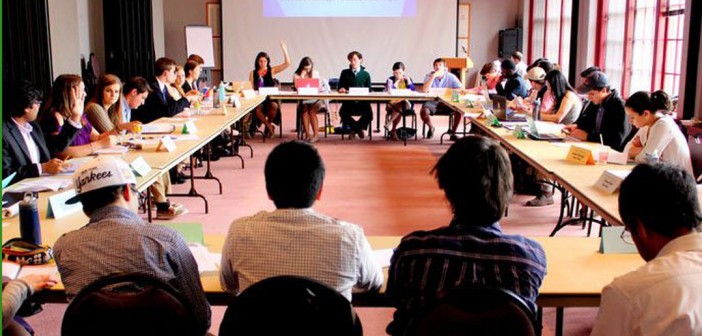Student Senate XXVI has created an inclusiveness excellence committee whose purpose is to draft a document that will address institutional changes aimed to make Lehigh’s campus more inclusive.
Student Senate XXVI president Andrew Callahan, ’14, said the main purpose of this proposal will be to change undergraduate course requirements so students learn about diversity, culture and social justice before graduating from Lehigh. The committee is in charge of drafting a document that outlines the proposed changes to be made in the academic curriculum.
The proposal is also looking to change pre-existing class curricula to include more themes of diversity and inclusiveness in the classroom.
The document must be reviewed and endorsed by the appropriate faculty committees, each college’s curriculum committee, the Student Senate inclusive excellence committee, the Student Senate, the academic deans and university leadership before it can be put into effect. It is expected to be proposed in the fall.
“I think a lot of what our community is focused on right now is that students can graduate without really learning anything about diversity or social justice or culture or other parts of the world, and we feel that really detracts from a Lehigh University degree and are looking to change that,” Callahan said.
The students in the committee have met with faculty and staff from all three undergraduate colleges, who have given their input and advice regarding the proposed curriculum.
The committee is working closely with the office of academic diversity and Dr. Henry Odi, Lehigh’s vice provost of academic diversity.
Odi has helped the students on the committee by connecting them to faculty groups who have advised them in the process of drafting a proposal. Odi has also helped by advising them through the whole process, Callahan said.
The other aspect of the proposal is that the changes cannot simply stop in the classroom.
Callahan said they want more activities and events that promote diversity and inclusion to happen outside of the classroom.
“Other things will be happening outside the classroom,” Odi said. “So we are going to look for ways of creating the linkages of the experiences and exposures of these students to these topics, matters, issues in the classroom and what happens outside the classroom.”
Even though the committee aims to fix a series of problems, some students agree that it will not fix everything, but it is ultimately worth trying.
“This document will not fix all of Lehigh’s problems, and it isn’t expected to,” said Wade Homer, ’15, a policy advisor for the committee. “There’s no way that a single solution could, because we’re not just facing one problem; we’re facing a multitude of multifaceted and multidimensional issues, some of which we have yet to even identify.
“It’s easy to point out problems with some solutions,” he said. “It’s easy to see what won’t work. What’s much harder, but what we need right now, is to look at a solution and see it’s potential, see the good it will do, even when problems are apparent.”
Callahan also stressed the fact that the Student Senate will not implement any changes that the student body at large does not agree with.
“I think it’s important to keep in mind that we are going to be polling students a lot and gathering a lot of feedback before we make any final decisions or present anything that will have a very, very lasting impact on the school,” he said.
Odi said the changes may be implemented in stages and because of the structure of the courses the first changes might come fall of 2015.
“If the proposals are approved, then it will be in phases because it would not be realistic to expect that the proposal would be implemented immediately because we don’t know the kind of content of that proposal will be yet,” Odi said.
Callahan noted that it was a very rare occurrence for a committee to start working at the midpoint of a semester, but they felt it was a necessary step to take.
“Normally, we define all our committees in August and September and we stick to them for the remainder of the year,” he said. “But after the events of last semester, we decided as a group that we really needed to be doing something to address this problem on campus that we have as far as our campus climate.
“I think the purpose of the committee mostly is to look at what we can do as the student governing body on campus to combat the problems that our campus climate has as far as awareness, social justice or diversity issues and similar topics,” he said.
Story by Brown and White news writer Gaby Morera, ’17.






Comment policy
Comments posted to The Brown and White website are reviewed by a moderator before being approved. Incendiary speech or harassing language, including comments targeted at individuals, may be deemed unacceptable and not published. Spam and other soliciting will also be declined.
The Brown and White also reserves the right to not publish entirely anonymous comments.